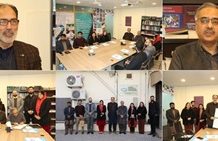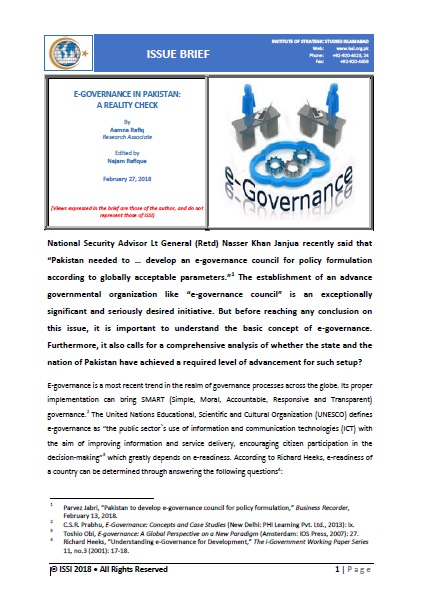National Security Advisor Lt General (Retd) Nasser Khan Janjua recently said that “Pakistan needed to … develop an e-governance council for policy formulation according to globally acceptable parameters.”[1] The establishment of an advance governmental organization like “e-governance council” is an exceptionally significant and seriously desired initiative. But before reaching any conclusion on this issue, it is important to understand the basic concept of e-governance. Furthermore, it also calls for a comprehensive analysis of whether the state and the nation of Pakistan have achieved a required level of advancement for such setup?
E-governance is a most recent trend in the realm of governance processes across the globe. Its proper implementation can bring SMART (Simple, Moral, Accountable, Responsive and Transparent) governance.[2] The United Nations Educational, Scientific and Cultural Organization (UNESCO) defines e-governance as “the public sector`s use of information and communication technologies (ICT) with the aim of improving information and service delivery, encouraging citizen participation in the decision-making”[3] which greatly depends on e-readiness. According to Richard Heeks, e-readiness of a country can be determined through answering the following questions[4]:
















